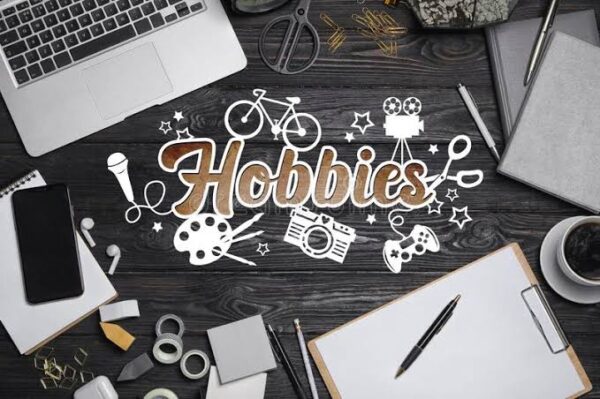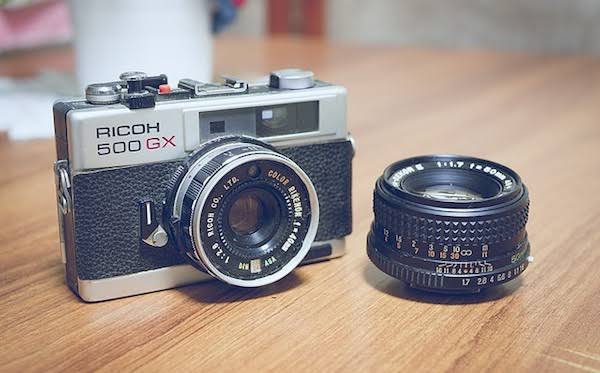Last updated Mar. 2, 2023 by Peter Jakes
Everyone needs a hobby, or more than one, but you owe it to yourself to examine how much money you spend on them each month.
How much of your disposable income do you devote to them? We will answer all the questions in this article.
Do you adequately account for your hobbies in the family budget each month? Or do you purposefully leave your spending vague? Have you ever kept your spouse in the dark about how much money you spent on your hobbies?
These can be severe indicators that you’re overspending on your diversions. You don’t want to risk the financial well-being of your family or your retirement savings by overpaying for your hobbies.
How Much Should You Spend On Hobbies?
Generally, you should spend between 5% and 10% of your take-home pay on hobbies and fun things. For example, if you bring home $3,500 a month (after taxes), you should plan to spend between $175 and $350 a month on hobbies.
This estimate is a wide range, and the exact amount you spend will depend on your situation.
What is the Difference Between a Hobby and a Passion?
A hobby is something you enjoy in your spare time, whereas a passion is something you wish you could devote all of your time and energy to. Hobbies and passions are easily confused. There is a significant difference between these two concepts.
Related: Signs You Don’t Make Enough Money? Here’s What to Do
Factors to Consider When Deciding How Much to Spend on Your Hobbies

1. Your Current Financial Situation
If you’re already having trouble making ends meet, it might not be a good idea to start spending money on hobbies until you get your finances in order.
Even if you’re just trying to save up for a big purchase, like a house or a car, you might want to cut back on your hobby spending for a while. You may have to make short-term sacrifices to reach your long-term financial goals.
On the other hand, if you’re doing well financially and have some extra money each month, there’s no reason you can’t spend a little bit on hobbies.
Just follow this rule of cutting back on your hobby spending and try not to spend too much if you have to.
2. Your Financial Goals
If you’re trying to save money for retirement or a down payment on a house, you’ll need to be extra careful with how much you spend on hobbies. You might even have to stop doing some of your favorite things until you reach your goal.
On the other hand, you shouldn’t feel bad about spending 10% of your income on hobbies if you can meet your monthly savings and investment goals and still do so.
After all, what’s the point of making money if you don’t let yourself enjoy some of it?
Related: What Is A Financial Safety Net? And Why Is It Important?
3. Your Current Income
If you don’t make a lot of money, you’ll probably have to spend less on hobbies than someone who makes more money. For example, someone who makes $10,000 a month might be able to set aside 10% to 15% of their budget for hobbies.
On the other hand, someone who makes $5,000 a month will likely have to set stricter limits for themselves.
Read also, 40+ of the Best Weekend Jobs to Make Extra Money in 2022
How to Manage Your Hobbies: Tips for Handling Expensive Hobbies

Many hobbies can be expensive, particularly electronics or other technology. However, even seemingly inexpensive hobbies can suddenly become prohibitively expensive.
You may assist reduce these expenses by utilizing the recommendations above without giving up the activities you enjoy. However, there are plenty of good ways to save money on your hobbies, and we’d love to hear about them.
But just because you have an expensive hobby doesn’t mean you have to spend all your money on it. You can avoid overspending on your favorite activities, allowing you to live a more balanced and financially secure life.
Here are six things to remember the next time you feel like your pastime is draining your money account.
1. Do the Most With the Least
Doing the most with the least is hard, and it takes a lot of self-control and discipline. You can buy too much stuff for just about any hobby.
It could be a huge collection of books you probably won’t read, video games you probably won’t play, electronic parts you probably won’t use, or woodworking tools you don’t need.
Or maybe you tend to back every Kickstarter project that has anything to do with your hobby.
No matter your hobby, you can make it less expensive by figuring out where you’re spending money you don’t need to. And this is the hard part: you must stop making those purchases or sell the things you already bought but probably shouldn’t have. It’s not easy, but seeing your financial goals in your mind can help you remember them.
Keep your long-term goals in mind; making good decisions about your money will be much easier. It’s also important to think about value. If you’re thinking about buying something you’ll only use once for a few hours, it might be better to save that money and buy something you’ll use for many hours.
2. Plan Ahead For Your Hobbies
You might think your passion for photography or music festivals can’t coexist with your adult self, but who knows that investing for the future should be one of your top priorities. But if you plan and think carefully about your interests and where you want to spend your money, you can find a good balance between spending money on your hobbies now and saving money for the future.
3. Create A Sinking Fund For Your Hobby

Making a sinking fund for an expensive hobby is one of the best ways to deal with the cost of it.
A sinking fund is a fancy name for an account where you save money for a specific purpose. In this case, you would save money in your sinking fund for your favorite hobby. Your hobby fund, as you might call it, is especially helpful if your hobby costs a lot of money to do or takes you far away from home.
To use a previous example, let’s say you’re an avid skier. You could start a special fund for your ski trips in the winter. So, when it starts to snow, you’ll have the money you need to go skiing without going over your budget.
If you want to start a sinking fund, do it through a savings account at a bank that you don’t usually use. Saving in a bank account you often use will make you less likely to waste money and help you keep it separate from the money you are saving for other goals.
4. Turn Your Hobby Into a Money-Making Venture
Not everyone will be able to turn their hobby into an avenue to make extra income, but many hobbies teach you useful skills that other people need. If you like taking things apart, you might be learning how to fix electronics. There are always people who need help fixing a broken device. Many small businesses could use your help if you like to build and change websites (freelance marketplaces can be a good way to get started on this).
If you know a lot about a certain kind of product or goods (books, board games, comics, clothes, or just about anything else), you might be able to sell it as a side business. Find great deals at thrift stores, where you may already shop, and sell them on eBay.
Or, you can teach your skill to someone who wants to learn it. Post an ad on Craigslist offering to teach a computer skill, tutor in a subject you enjoy reading about, or help people with any problems you can. There are many other ways to make a little money with your hobby.
4. Volunteer to Get Access to Your Hobbies
If you’re really into music festivals, sporting events, or other live entertainment, see whether you can volunteer to help scan tickets or hand out water for free access to the event itself. You not only get a behind-the-scenes look at what it takes to pull together a big event, but there’s also a decent chance the other volunteers are just as excited about being there as you are. You manage your expensive hobby by getting free access to the show and getting to make connections with people who share your interest.
5. Buy Used Hobby Items
Purchasing used items is related to a few other things on the list of how to make the most of your hobbies, and it should probably be obvious by now, but it’s so important to keep your hobby cheap that it’s worth mentioning. Buying used should be your first choice, or at least your first thought, almost all the time.
Some hobbies, like mine, books, and board games, may be better for this rule than others, but almost everyone should try to find something used before they buy something new.
Whether you do that through Craigslist, eBay, Amazon, local Facebook groups, specialty websites, or talking to friends, it will probably take more work than buying something new, but it will surely save you money. And buying and selling used things can be a good way to make extra money so that you can add to your income in that way as well.
Read 10 Ways To Get Free Shipping Supplies (Right Now!)
6. Reduce Your Fixed Expenses
Cutting your fixed expenses is one of the best ways to make more room for your hobbies and interests in your budget.
What Is a Fixed Cost?
A fixed expense is a bill you must pay every month, regardless of how much money you make or how you spend it. Rent, mortgage, car, insurance premiums, and student loan payments are all fixed expenses.
Even if you can’t eliminate them, there are numerous strategies to lower the amount of money you spend each month on fixed costs.
For example, you might pay off your automobile loan to eliminate your monthly car payment. You could contact your insurance carriers and inquire about strategies to reduce your monthly premium. If you truly want to go the distance, you may sell your home and move into a smaller, less expensive one.
Read also, 30 Budget Busters That Will Hinder Your Savings
7. Budget For Your Expensive Hobbies

Budgeting for your hobby might be the hardest and most boring, but it’s also one of the most important. If you don’t want your hobby to ruin your finances, you’ll need a budget in the first place.
It’s hard to know how much to put in your budget, but you can make it easier if you use an app like Mint or YNAB that can look at your past purchases and tell you how much you spend on your hobby each month.
My family has a lot of student debt, so we set a budget for board games that is a little lower than I’d like. But it helps us keep paying off our student loans and retirement savings, so it’s worth it. It’s not easy to stick to the budget every month, but it’s helped a lot to see our financial goals and stay motivated to reach them.
Related: Budgeting for Unexpected Expenses, Best Ways to Avoid Disaster
8. Put Your Long-Term Goals First
It’s important to keep putting your long-term financial goals ahead of your hobbies, no matter how hard it can be.
For example, if you’re trying to save up for a house or retirement, ensure you’re putting away enough money each month to reach your goals. Then and only then should you spend money on your hobbies.
Even though your hobbies and interests are an important part of your financial journey, they shouldn’t stop your long-term progress.
Starting a New Hobby: What You Should Know Before Starting a New Hobby
What’s Fueling Your Desire?
It’s important to keep putting your long-term financial goals ahead of your hobbies, no matter how hard it can be.
For example, if you’re trying to save up for a house or retirement, ensure you’re putting away enough money each month to reach your goals. Then and only then should you spend money on your hobbies.
Even though your hobbies and interests are an important part of your financial journey, they shouldn’t stop your long-term progress.
Do You Have Sufficient Time to Devote to Your Hobbies?
Some hobbies only provide a sense of accomplishment if you devote significant effort to mastering them. Strumming the guitar, for example, may not be particularly pleasurable until you can play a familiar piece. Alternatively, you may find golf intriguing until you discover you need to plan a tee time and commit most of an afternoon to circle the course.
If you’re retired, devoting time to a new hobby might be a fantastic way to occupy the day. It can also be used to spend quality time with family and friends. On the other hand, your potential hobbies may require you to locate a time that you do not have. So consider whether it will fit into your agenda.
How Much Should You Spend on Your Hobbies?

Once you’ve decided you’re seriously interested and have adequate time, you should choose how serious you are and how much money you’re willing to invest. Check to see if there is a free trial period or if you may just take one session before making a large commitment.
If you need to acquire equipment, We recommend reading reviews and joining social media groups to get inside knowledge to know you’re getting the best value for your money. Doing adequate research is also a fantastic start if you want to rent or buy used ones.
Putting down more money upfront may pay off in the long run for more expensive hobbies, especially if a higher-quality, longer-lasting product makes the hobby more enjoyable.
What If You Change Your Mind?
Even if you do your homework, you may begin a hobby only to discover that it is not for you. Should you feel compelled to continue?
Remember that hobbies aren’t meant to work. Rather, they should be entertaining and interesting. So, if you have a lot of equipment that you don’t use, keep in mind that what one person considers trash is another person’s treasure. List your items online and consider how happy the next person who wants to learn how to watch birds or make beads will be.
Read also, 21 Places To Easily Sell Your Used Electronics: Helpful Tips
The same is true if your new hobby makes sticking to your budget impossible. The last thing you want is for your hobby to harm your mental and physical health.
Building Hobbies Into the Budget
Each individual must determine how much money they can comfortably spend on a hobby and how much they can afford to spend. After all, there are numerous aspects to consider.
Perhaps everyone in your family has the same hobby, or perhaps your hobby is related to your employment. But there are a few things to consider:
- Are you in a good financial situation? If not, you don’t have to abandon your hobby entirely, but you should usually aim to spend as little money on it as possible.
- Are you saving enough to meet your goals on time? It depends on your priorities; however, it could be an issue if spending money on your hobbies prohibits you from working.
Rules of Thumb for Spending On Your Hobbies

Most people don’t realize how much they spend on their hobbies. For example, when you golf, you might not add up the course cost, new clubs, and meals at a restaurant.
Don’t be too cheap or give up things you like. Instead, make a budget with some general rules. The rule of 50/30/20 is a good place to start. You pay for necessities (bills, mortgage, etc.) with half of your income and save the other half. So, you have 30% left to spend on “wants” or fun things.
- Some financial experts prefer a stricter approach: I’ve also heard that you shouldn’t spend more than 10% of your take-home pay on hobbies and other fun things.
- You should, however, take these ideas with a grain of salt. Studies show that things are much less important to us than the things we do. In this way, hobbies can be helpful.
If you like your hobby, you can devise creative ways to pay for it. Find out if you can get a job that pays you to do your hobby. So, if you like golf, check if a driving range or golf course is hiring. A lot of employers give their workers green fees or special hours.
Can You Monetize Your Hobby?
Turning a pricey hobby into a side business is a great way to make it worth it.
If your hobbies take too much money out of your savings, you might want to turn one of them into a business; J. Money, the well-known author of Rockstar Finance, and several hobbies that turned into businesses.
Do you like to write? You could work on your own. Do you collect coins in your spare time? You might want to think about selling them on sites like eBay or making your website.
Related: 30 Ways of Making $5,000 in Two Weeks
Most of the time, the things you’re best at in life are the things you’re most interested in. It just so happens that these are two of the best business traits. Who knows, maybe it will become a small empire.
Hobbies Could Springboard Your Life Into Retirement

Or could you use your hobby as a launching platform for a job in retirement? Maybe it is not such a bad thing that your hobby costs you an arm and a leg. That’s the advice Diane Eschenbach, a life coach, often gives her clients.
“Those materials and experimentation are all building the foundation for your true enjoyment and possible monetization of your passion in the future. Building side business benefits from being done over time, and when your current income can support it, that scenario is a perfect testing ground.”
Read also: How much money is enough for retirement
Read also: Steps to take 10 Years Before Retirement
Hobbies are a win-win situation because they make people happy, says Eschenbach. If you’re spending everything you make on your hobby, then possibly take that queue and transition immediately to your hobby.
How Much You Can Spend on Your Hobby May Not Matter

There is no standard, but a good starting point would be to direct most of your current miscellaneous spending toward your hobby. Hobby spending is an important part of life as long as you have positive cash flow every month and are on track to meet your goals, whatever they may be. After all, what is money if it isn’t a means for us to do what we love?
Bottom Line
When spending money on a hobby, you should consider your overall financial situation, monthly budget, and long-term financial goals.
That said, if you manage your money wisely and follow the advice in this article, there’s no reason you can’t make room in your budget for your favorite hobbies and interests.
Don’t miss, How to Calculate Your Adjusted Gross Income(A Detailed Guide)
Frequently Asked Questions (FAQs)
Q: Are hobbies a waste of money?
Hobbies are activities that you do for fun. Hobbies do not have to be financially rewarding or part of a self-improvement program. Instead of feeling guilty about being unproductive, notify yourself that constant productivity is detrimental in the long run.
Q: Should you invest in your hobbies?
There are many reasons why investing in a hobby is always a good idea. Start by thinking about how you felt the last time you did something you liked. Didn’t you feel more creative and inspired when you left than when you came? Your mood got better, and you were happier in general.
Q: How can I justify my spending money on a hobby?
Turning an expensive hobby into a side business is a great way to justify it. If you find your hobbies are taking too much money out of your stash, consider turning one of them into something profitable.
Q: How do you control hobby spending?
Spending on hobbies is not a hopeless cause – here are some good ways to keep your spending in check and still have lots of fun in your free time:
- Sell your works of art.
- Offer your services for sale.
- For a fee, teach your hobby to others.
- Write about your passion.
- Create and sell equipment or equipment modifications related to your hobby.
Q: How do I turn my hobby into a career?
Here are the tips for turning your hobby into a career:
Begin Small: There are numerous reasons to start earning money from your hobby before attempting to turn it into a career, but let’s start with the most obvious:
- Make Contacts who could help springboard your new career
- Conduct Market Research
- Make a marketing Strategy for your hobby
- Make a Financial Plan
- Spread the Word about what you do to family and friends.
- Reevaluate Your Objectives
Q: How do you balance multiple interests?
Here are a few things that helped and can help you manage multiple interests:
- List your hobbies according to your priorities
- Create a budget for the most important ones or the hobbies that make you most happy
- Eliminate the fleeting or unimportant interests
- Consume social media content consciously. A lot of the auto-suggestion comes from the media we consume
- Limit interaction with people who speak negatively about your passions and interests
- Journal your hobby activities!
Q: What to do when you have too many hobbies?
What Should We Do When We Have Too Many Hobbies?
- Step 1: Write down a List of 10 Hobbies that you are most Interested in
- Step 2: Order them from Highest Interest to Lowest Interest
- Step 3: Pick your Top 2 Hobbies and Stick With Them
- Step 4: Create Systems
- Step 5: Keep Improving.
Q: Is it OK to have an expensive hobby?
There’s nothing wrong with having a hobby (or several), but it shouldn’t come at the expense of your financial objectives. There’s nothing wrong with admitting you have an expensive hobby you don’t want to give up. Don’t act like it won’t harm you in the long run.







